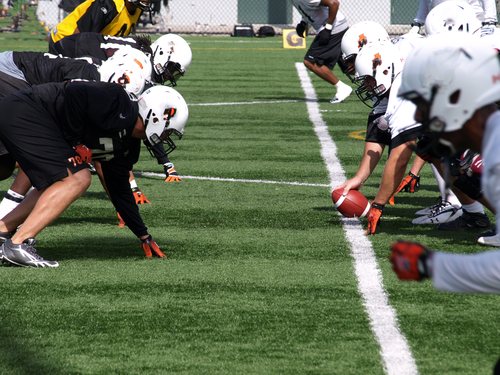Shoulder dislocation injuries can be painful and debilitating if one does not seek proper medical attention following the injury. For most, this injury occurs due to a traumatic event or during a sports game. In sports like football, hockey and basketball, shoulder dislocations are more prevalent due to the level of contact involved. While this injury is usually very simple to treat, it does require some healing time and possibly physical therapy or even surgery. If you dislocate your shoulder, immediately seek medical attention in order to readjust your arm and begin the healing process. 
Due to the fact that shoulder dislocations injuries are common in sports, Dr. Grossfeld has created a list of the top 10 facts patients should understand about shoulder dislocation injuries.
Top 10 Facts About Shoulder Dislocation Injuries
- Most commonly occurs from a traumatic event.
- In patients under age 18 years and younger, males are more likely to undergo a shoulder dislocation compared to females.
- The highest rate of recurrent dislocation among younger athletes occurs in the 14 to 16 year old group.
- Athletes that are age between 10-13 years of age have a low risk of recurrent dislocation after initial shoulder dislocations.
- In general, patients younger than 20 years of age are at highest risk of sustaining a primarily anterior shoulder dislocation as well as to develop recurrent glenohumeral joint instability, i.e., recurrent dislocations.
- Patients that involve in contact sports are at highest risk for repeat discoloration after their initial dislocation.
- The most common dislocation is where the shoulder comes out the front, also known as an anterior dislocation. The most common dislocation among linebackers while playing American football is a posterior dislocation where the shoulder is dislocated out the back.
- Posterior dislocations are also associated with electrocution and seizures.
- For healthy patients, shoulder dislocations heal within 12 weeks of the injury.
- In summary, males, aged 20 years or less, in a contact sport are most likely to sustain a shoulder dislocation and sustain recurrent dislocations if returning back to the contact sport.
If you think your shoulder is dislocated you should seek emergency medical treatment immediately. Dr. Grossfeld is available to help assess the injury, determine treatment options and help you get back out on the field, court or life!

Recent Comments